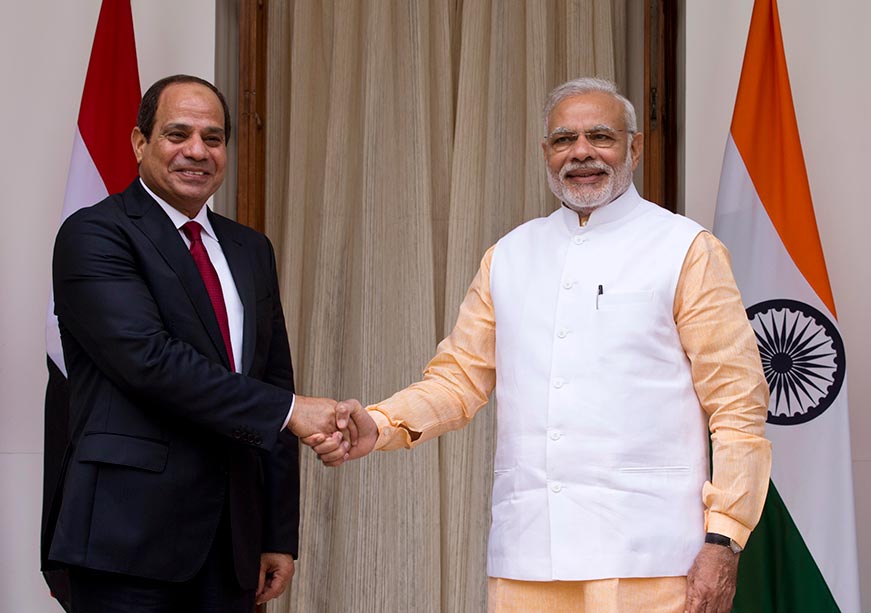Strategic misalignments, not skill deficits, explain why Egyptian web developers on global freelance platforms like Upwork earn far less than their Indian counterparts, despite comparable technical proficiency.
In the face of persistent economic headwinds, including high youth unemployment and a national imperative to generate foreign currency, freelancing has emerged as a powerful lifeline for Egypt’s workforce. This model of work offers a direct path to the global economy, allowing skilled individuals to bypass local labour market constraints, mitigate the risk of brain drain by earning hard currency from home, and decentralise economic opportunity beyond the nation’s crowded urban centres.
Recognising these benefits, a new generation of Egyptian youth is proactively forging its own career paths. A particularly popular entry point into this global marketplace is web development. Fueled by an unprecedented abundance of accessible online learning materials and bolstered by government initiatives from the Ministry of Communications and Information Technology, graduates from diverse, often non-technical backgrounds like literature, arts, and commerce, are acquiring in-demand digital skills.
This confluence of grassroots initiative and top-down support raises a crucial policy question: Are these individual and institutional efforts guiding talent in the right direction? To evaluate the impact and steer future strategy, one needs a sophisticated understanding of the market. This requires more than just anecdotal evidence; it demands a systematic analysis of complex, multi-sided data, including the performance of Egyptian freelancers, a valid benchmark against a leading country like India, and a clear measure of what global clients are actually demanding. While this information exists publicly, its sheer volume and unstructured nature make it incredibly difficult to analyse systematically.
To bridge this critical knowledge gap, recent research by the Egyptian Center for Economic Studies (ECES) undertook a comprehensive analysis, leveraging a rich, granular dataset collected from Upwork—a leading global platform for web development. The study compared the performance of 1,800 Egyptian web developers with 19,000 Indian counterparts, analysing outcomes across 40,000 client gigs to uncover what drives success in the global digital marketplace. The findings offer compelling insights into why some countries excel while others struggle to convert potential into performance.
Equal Talent, Unequal Earnings
The research quantifies a stark performance gap: while Egyptian web developers on Upwork earned a cumulative $11 million, their Indian counterparts generated $466 million. The most obvious explanation—the difference in sample size—proves insufficient. While the Indian freelance workforce on Upwork is 11 times larger, its aggregate earnings are a disproportionate 44 times greater. This disparity translates to the individual level: the average Indian freelancer earned US$24,526, over four times the Egyptian average of US$6,000—a gap not explained by market tenure, as both cohorts joined the platform over a similar period.
Moreover, the data reveals that these averages mask a deeper structural problem. The Indian market shows a balanced distribution of income, whereas Egypt’s is a highly polarised, ‘winner-take-all’ environment—where a small elite captures the vast majority of earnings, with 37 percent of registered freelancers having earned nothing at all.
This leads to the central ‘parity paradox’ of the research: this disparity in outcomes is not driven by a lack of technical competence. The data shows that when Egyptian freelancers do secure work, their performance is world-class and statistically identical to their Indian peers, with a 95.4 percent job success rate and comparable hourly wages across all specialisations.
The conclusion is therefore profound: the problem is not the ability to do the work, but the ability to secure it. The immense earnings gap originates from a series of strategic misalignments that prevent the majority of Egyptian talent from successfully competing to secure projects and attract clients in the first place. The research identified three key factors that, when combined, create a powerful barrier to entry and earning potential for the majority of Egyptian freelancers.
- A Misalignment with Global Skill Demand: Speaking the Wrong Professional Language
The global freelance market for web development sends a clear demand signal: 58 percent of all job postings seek versatile ‘full-stack’ developers. Indian freelancers have aligned themselves strategically with this reality. With 49 percent specialising in full-stack roles, they are well-positioned to meet the market’s primary need.
Egyptian freelancers, however, exhibit a significant strategic misalignment. Only 39 percent focus on high-demand full-stack roles. Instead, a disproportionate 40 percent specialise in the narrower field of front-end development, a niche that represents only 19.3 percent of global demand. This fundamental misalignment channels a large portion of Egyptian talent into a smaller, more saturated market, intensifying competition for fewer opportunities and directly limiting their earning potential.
- Divergence in Time Commitment: The Vicious Cycle of the Side-Gig Mindset
A second explanatory variable is the level of professional commitment, which manifests as a clear divergence in work intensity. The research indicates that 61 percent of Indian freelancers dedicate over 30 hours per week—a significant time investment, signalling that freelancing is treated as a primary professional activity. This “all-in” approach allows them to build momentum, take on larger projects, and establish a steady pipeline of work, which is crucial for long-term success.
In contrast, only 45 percent of Egyptian freelancers commit to a similar level of engagement, with many approaching it as a supplemental activity. This hesitancy is often rooted in a rational desire to avoid risk in the absence of a guaranteed income. However, this risk-averse strategy creates a self-perpetuating vicious cycle. A lower time commitment leads to fewer completed projects and suppressed income. This low return then reinforces the initial perception of freelancing as a less viable primary career, trapping talent in a low-earning loop which is difficult to escape. The data makes this starkly evident: 30 percent of Indian freelancers earn over US$1,000, a milestone reached by only 11 percent of their Egyptian counterparts. The Indian model demonstrates that high returns in freelancing are a result of high commitment, not a prerequisite for it.
- Disparities in Self-Marketing: The Untapped Power of Digital Credibility
In a global digital marketplace where clients and freelancers may never meet, trust is built not in person but through pixels. Here, technical ability is merely the entry ticket; it is self-marketing and digital credibility that ultimately close the deal. The analysis revealed that Indian freelancers have mastered this art. Their online profiles are significantly more detailed and persuasive, averaging over 1,100 words compared to a brief 600 for Egyptians. These longer profiles are not just filled with keywords; they articulate a professional narrative, showcasing project histories, problem-solving approaches, and a clear value proposition.
Furthermore, Indian freelancers are more likely to leverage video portfolios to demonstrate their capabilities and actively cultivate client reviews—the essential currency of trust on digital platforms. The economic impact of this “credibility gap” is substantial. The data shows that for an Egyptian freelancer, simply having a video portfolio is associated with a remarkable 67 percent increase in income. By underinvesting in the soft infrastructure of their professional profiles, a significant portion of Egyptian talent fails to fully translate their technical proficiency into the perceived credibility required to win high-value international contracts.
A National Roadmap for Success in the Digital Economy
These findings offer more than just an explanation for an earnings gap; they provide a clear, evidence-based roadmap for transforming Egypt’s freelance sector into a strategic national asset. The analysis demonstrates that the performance gap is not an insurmountable talent deficit but a correctable issue of strategic alignment.
For policymakers and educational institutions, the implications are direct and actionable. First, government-sponsored training programmes must be recalibrated to shift focus from narrow specialisations toward the comprehensive, in-demand skill set of full-stack development. Second, curricula must be expanded beyond technical instruction to systematically embed the crucial soft skills of digital marketing, client communication, and professional brand management. Finally, innovative policy instruments, such as de-risking grants or financial incentives for promising freelancers who commit full-time, could prove instrumental in breaking the vicious “part-time” cycle and fostering a new generation of professional, high-earning freelancers.
For any nation aspiring to build a robust digital export economy, this research provides a critical insight: success is determined not just by technical talent, but by strategic alignment with global market dynamics and the mastery of a new kind of digital salesmanship. By addressing these identified gaps, Egypt can unlock the immense economic potential of its human capital and claim its rightful share of the global digital economy.
This paper is based on research conducted by the authors at The Egyptian Center for Economic Studies. The research can be found at:
Ahmed Dawoud is an Economist and the Head of the Data Analytics Unit at the Egyptian Center for Economic Studies (ECES).
Ahmed Wael Ahmed Habashy is an AI Engineer at the Egyptian Center for Economic Studies (ECES), specialising in the development of intelligent systems for labour market and economic analysis.












